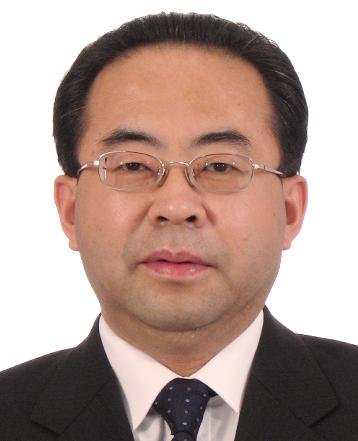
|
REGIONAL> Top regional news
 |
|
On-line interview of Liaoyang mayor Tang Zhiguo
 By Wu Yong and Guo Song (China Daily Liaoning Office)
Updated: 2009-03-05 19:43 Liaoyang, located in the central part of Liaoning province in northeast China, is famous for petrochemical industry. The city is now pushing forward three strategies: building Hedong New Town, establishing an aromatic hydrocarbon production base and constructing Shenyang-Liaoyang-Anshan.
 " style="WIDTH: 299px; HEIGHT: 368px" title=""/> " style="WIDTH: 299px; HEIGHT: 368px" title=""/>Tang Zhiguo, mayor of Liaoyang Tang Zhiguo, mayor of Liaoyang is invited to China Daily recently for an on-line interview. He talked with China Daily’s reporter Yu Tianyu on the city’s new measures fighting against the global financial crisis in the fields of industry, employment and environment protection. Q: It is not your first time to be here in Beijing as a delegate of NPC, so what’s your expectation from this year’s “two sessions?” Two days have passed since you arrived here, and what’s your feeling? A: As annual meetings though, this year’s “two sessions” are held against an unusual background and with special importance because the whole world are fighting against the financial crisis. All delegates and the rest of the Chinese people are concerned about questions such as “how to cope with the global financial crisis in China” and “how to improve people’s living standards and let everyone enjoy the fruit of social and economic development.” Q: Liaoyang has a long history. What kind of difficulties or challenges has been brought to such a city when financial crisis has happened? What measures will be taken to fight against the crisis? A: The overall situation of Liaoning province is good and we are moving on to the right direction. Liaoyang has also suffered in several aspects. First, manufacturing enterprises have fewer orders due to declining market demands. Second, local consumers are not as confident as before. Finally, the exports have decreased. Despite the disadvantages brought by the crisis, we are still confident because the GDP of the city grew by 16 percent during 2008. Based on our estimation and Liaoyang’s situation, we are sure that the growth of GDP in Liaoyang will reach 14 percent in 2009. Q: Facing the financial crisis, many cities and provinces are restructuring and optimizing their industries. What I want to know is what adjustments Liaoyang will make in the crisis. A: The financial crisis is a chance for the city as well. Among all the industries in Liaoyang, manufacturing enterprises which are the main and supporting economic force to the city have suffered the most in the crisis. To summarize, the industrial restructuring in Liaoyang means we must raise the scientific and technological standards of our industries. I have recently visited Japan, Korea and Singapore to promote foreign investment in Liaoyang. What’s most impressed to me is that the scientific and technological standards of our industrial products are far behind our foreign competitors. Besides concentrating on industries we already have, we are also willing to create a new cluster of hi-tech industries. For example, the ongoing diesel motor program represents the leading technology of the industry in the world. Only two enterprises in China are able to manufacture this kind of diesel motors. One is a German company, and the other is Xinfeng Enterprise Group Co., Ltd which is located in Liaoyang. The production lines of both enterprises are in China, and their products account for a larger part of Chinese market. Such an industries cluster of high scientific and technological standards requires many related companies. Therefore, our purpose is to improve the scientific and technological standards of our manufacture, based on the current situation of the industry in our city. The municipal government will support any program as long as it is of high scientific and technological standards and not against the guidelines issued by the central government concerning the industry. Those enterprises who fail to meet the national standards of energy consumption and environmental protection will be shut down. I think this is a good way of industrial restructuring. |